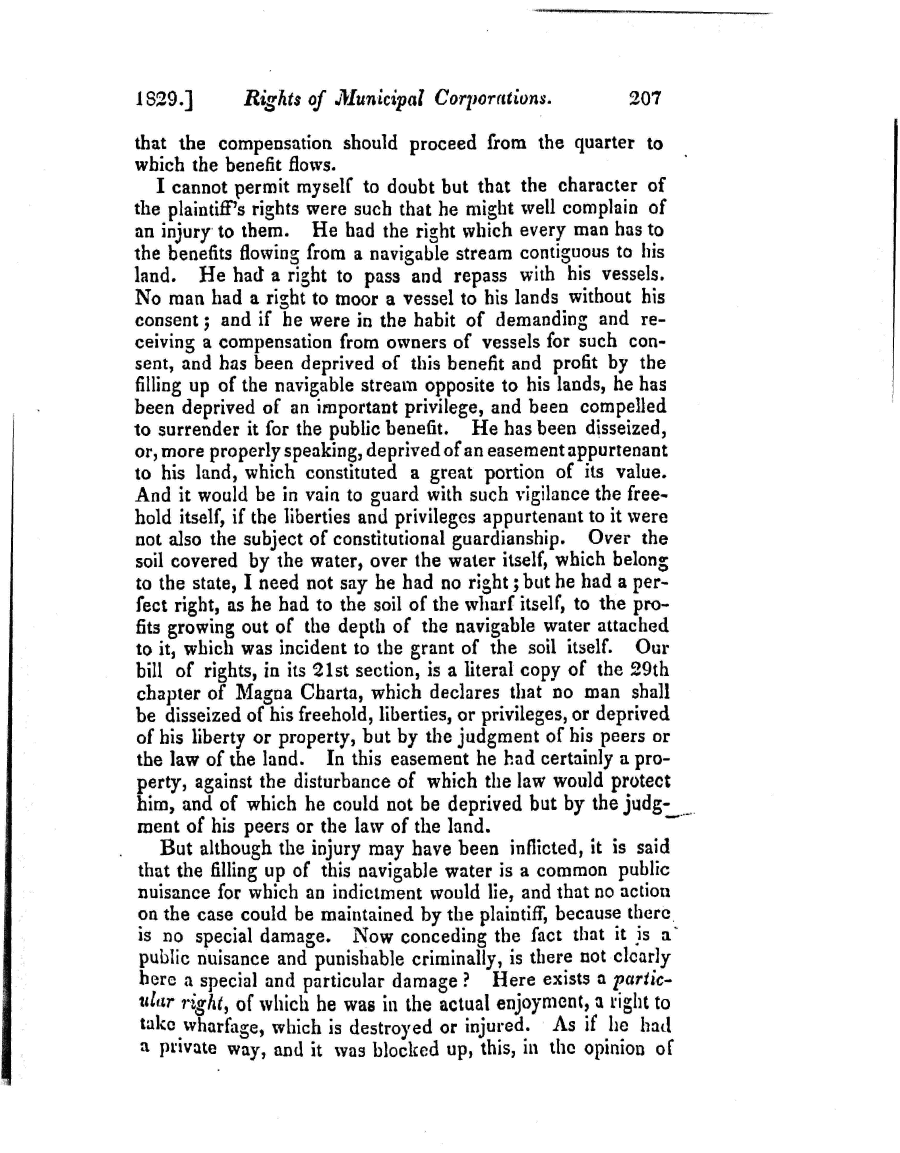|
1S29.] Rights of Municipal Corporations. 207
that the compensation should proceed from the quarter to
which the benefit flows.
I cannot permit myself to doubt but that the character of
the plaintiff's rights were such that he might well complain of
an injury to them. He had the right which every man has to
the benefits flowing from a navigable stream contiguous to his
land. He had a right to pass and repass with his vessels.
No man had a right to moor a vessel to his lands without his
consent; and if he were in the habit of demanding and re-
ceiving a compensation from owners of vessels for such con-
sent, and has been deprived of this benefit and profit by the
filling up of the navigable stream opposite to his lands, he has
been deprived of an important privilege, and been compelled
to surrender it for the public benefit. He has been disseized,
or, more properly speaking, deprived of an easement appurtenant
to his land, which constituted a great portion of its value.
And it would be in vain to guard with such vigilance the free-
hold itself, if the liberties and privileges appurtenant to it were
not also the subject of constitutional guardianship. Over the
soil covered by the water, over the water itself, which belong
to the state, I need not say he had no right; but he had a per-
fect right, as he had to the soil of the wharf itself, to the pro-
fits growing out of the depth of the navigable water attached
to it, which was incident to the grant of the soil itself. Our
bill of rights, in its 21st section, is a literal copy of the 29th
chapter of Magna Charta, which declares that no man shall
be disseized of his freehold, liberties, or privileges, or deprived
of his liberty or property, but by the judgment of his peers or
the law of the land. In this easement he had certainly a pro-
perty, against the disturbance of which the law would protect
him, and of which he could not be deprived but by the judg-
ment of his peers or the law of the land.
But although the injury may have been inflicted, it is said
that the filling up of this navigable water is a common public
nuisance for which an indictment would lie, and that no action
on the case could be maintained by the plaintiff, because there
is no special damage. Now conceding the fact that it is a'
public nuisance and punishable criminally, is there not clearly
here a special and particular damage ? Here exists a partic-
ular right, of which he was in the actual enjoyment, a light to
take wharfage, which is destroyed or injured. As if he had
a private way, and it was blocked up, this, in the opinioo of
|

